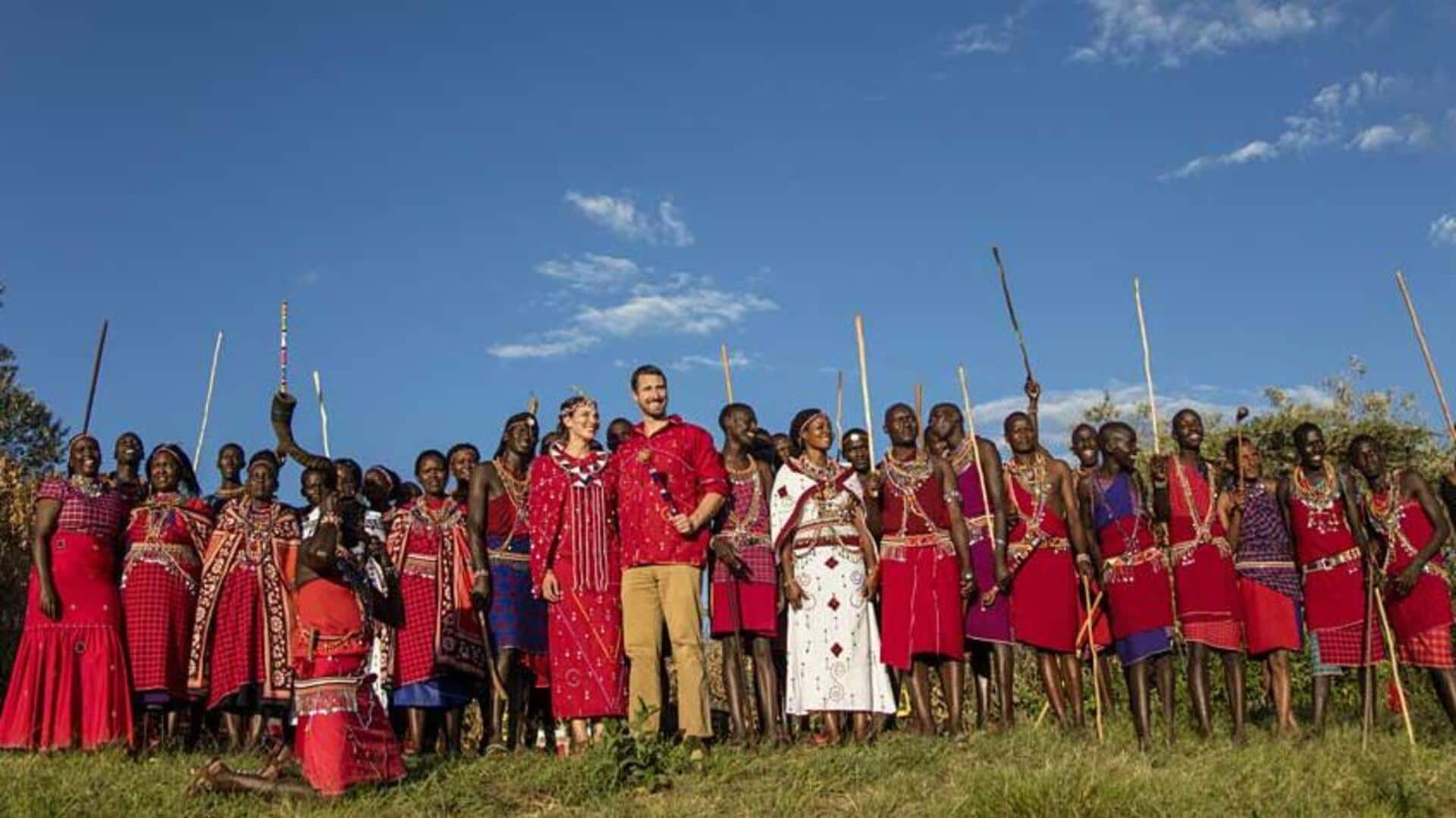
Maasai tribe weddings: Unique traditions that will amuse you
What's the story
The Maasai tribe of Tanzania is famous for its rich culture and unique traditions. Their weddings are no different, providing a fascinating insight into their traditions. Unlike the majority of Western weddings, the Maasai weddings are highly rooted in community participation and customs passed down generations. The ceremonies focus on family ties, community bonds, and cultural continuity rather than individual choices or modern practices.
Beadwork significance
The role of beadwork in weddings
Beadwork is an integral part of Maasai weddings. The elaborate designs and colors of the beads signify different elements of life including fertility, prosperity, and social status. The brides usually wear elaborate bead necklaces and headpieces made by female relatives. This beadwork isn't just for show, it also communicates messages about the bride's family and her role in the tribe.
Collective participation
Community involvement in ceremonies
Maasai weddings are communal events where everyone has a role to play. The whole village often participates in preparations that can last several days. From cooking traditional dishes to setting up ceremonial spaces, each task is shared among the community members. This collective effort strengthens social bonds and ensures that the wedding is not just a union between two individuals but a celebration for all.
Dress code traditions
Traditional attire's importance
Traditional attire is an integral part of Maasai weddings. Both the brides and grooms wear brightly colored shukas—a type of cloth—and beadwork unique to their clan or family lineage. Not only do these outfits look beautiful, they also signify identity, heritage and respect for the ways of the ancestors.
Ceremony practices
Unique wedding rituals
Maasai wedding rituals are also unique in various senses. One such is the blessings from elders who guide the newlyweds in keeping their marriage harmonious. Another unique practice includes symbolic gestures such as exchanging gifts between the families to symbolize unity and mutual respect among clans involved in the marriage alliance.